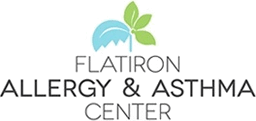Allergy Drops & Tablets
Allergy drops, and tablets are two forms of sublingual immunotherapy that are injection-free alternatives to allergy shots.
Both contain environmental allergen such as pollen, dust mites, molds, cat, or dog (tablets contain grass or ragweed only as of early 2015) and are placed under the tongue with the goal to modify the immune system’s response to allergens in an effort to minimize and/or prevent an allergen initiated inflammatory response.
Patients who would like to reduce and possibly prevent allergen induced ocular symptoms of itchy, red, and watery eyes and nasal symptoms of sneezing, runny nose, congestion; and desire a home-based treatment option for immunotherapy should consider allergy drops or tablets.
Generally speaking, allergy drops, and tablets are less effective than allergy shots, but maybe safer and can be administered at home.
Allergy Drops
Allergy drops, like allergy shots, are formulated specifically based on each individual’s allergenic sensitivities as assessed by allergy testing. Allergy drop formulations contain FDA approved product but are administered in an “off-label” capacity and, therefore, are not reimbursed by commercial insurance.
The first dose is administered in the Allergist’s office with subsequent doses administered at home with the need for a home epinephrine auto-injector given the rare risk of a systemic allergic reaction. More common adverse symptoms of allergy drop include itching of the mouth and throat with less frequently associated swelling of those areas. There are two phases to the allergy drop treatment program, an initial “build-up” phase followed by the “maintenance” phase. In the “build-up” phase, doses are gradually increased and in the “maintenance” phase, the patient will take the same dose of drops each day. To build a “lasting immunity” treatment is usually continued for 3-5 years.
Risks of allergy drops include life-threatening anaphylaxis; (hives, swelling, trouble breathing, vomiting, lightheadedness); local reactions with symptoms such as mouth itching, tongue itching, ear itching, mouth swelling, and throat irritation; and eosinophilic esophagitis.
Allergy Tablets
As of early 2015, Oralair (Stallergenes), Grastek (Merck) and Ragwitek (Merck) are FDA approved sublingual immunotherapy tablets.
Oralair and Grastek treat allergy skin or blood test documented northern grass allergy, and Ragwitek treats allergy skin or blood test documented ragweed allergy; all three tablets have been proven to reduce eye and nasal allergy symptoms secondary to grass and ragweed allergy, respectively.
These tablets will require the first dose to be administered in the Allergist’s office with subsequent doses administered at home with the need for a home epinephrine auto-injector given the rare risk of a systemic allergic reaction. More common adverse symptoms of sublingual immunotherapy tablets include itching of the mouth and throat with less frequently associated swelling of those areas.
SLIT tablets are usually started months before the relevant grass or ragweed pollen season and are continued through the respective season at which point it can be either discontinued or alternatively can be continued year-round to achieve a greater sustained level of efficacy.
We welcome you to schedule an appointment to discuss which treatment option is best for you.
